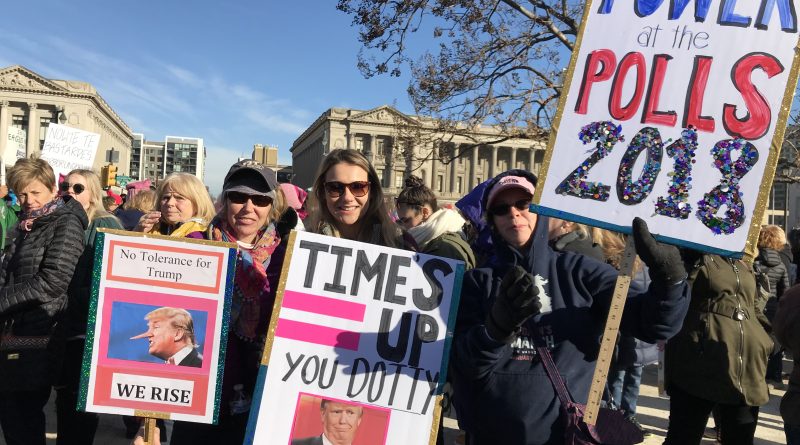Thousands Gather for Philadelphia’s Second Women’s March
BY CLAIRE HALLORAN
An estimated 50,000 people gathered in Philadelphia Saturday for the second annual Women’s March.
The crowd, filled with pink hats and posters denouncing the current administration, marched from Logan Square Park to the steps of the Philadelphia Art Museum, where several speakers presented.
“We need to take action, we need to bring kindness back to our country,” said Erica King, a representative of The Sisters Of Salaam Shalom. “We need to make sure all women are represented, of all shapes, sizes, colors, and denominations. Our country is about not supporting bigotry and defending persecution.”

The event is known as the “sister” to gatherings that took place around the world last weekend, which had a worldwide attendance of 4 million people.
Philadelphia was one of the few, alongside Chicago, that kept its numbers up from last years event, which took place the day after President Trump’s inauguration. In New York, attendance was down to 200,000 people, only half of last years numbers.
Some media outlets suspect the increase in attendance in cities such as Philadelphia and Chicago are due to a lack of women traveling all the way to D.C. as was done last year.
“Last year’s march was life-changing to me, there was just so many people with a common thread,” said Lisa Costello, who attended the march in Washington, D.C. in 2017. “It was very empowering, and I’m sure today will be too.”
The gathering in Philadelphia was attended by women and men of all ages, but was noticeably lacking in any other form of diversity.
The event, both this year and lasts, has been called out for being exclusive of women of color and trans women.
This year, a particular concern rose after rumors were spread of a planned police presence, along with bag searching and stop-and-frisk checkpoints. This caused distress, which caused many people and organizations, such as Temple’s Feminist Majority Leadership Alliance, to protest the event.
Conversation on the Women’s March Facebook page, and media outlets such as philly.com, also pointed out the transphobic nature of many posters at the event, as well as the march’s iconic pink “p*ssyhats”.
One sign reading “No Uterus, No Opinion” exemplified the issue of transphobia, as it ignores the fact that not all women have uteri.
Another popular theme on this year’s posters was putting emphasis on voting in the 2018 midterm elections.
In Pennsylvania, a seat in the United States Senate will be up for grabs, as Senator Bob Casey’s current term comes to an end.
The primary will take place on May 15, a date some of the attendees say they will be looking to show their power at the polls.




